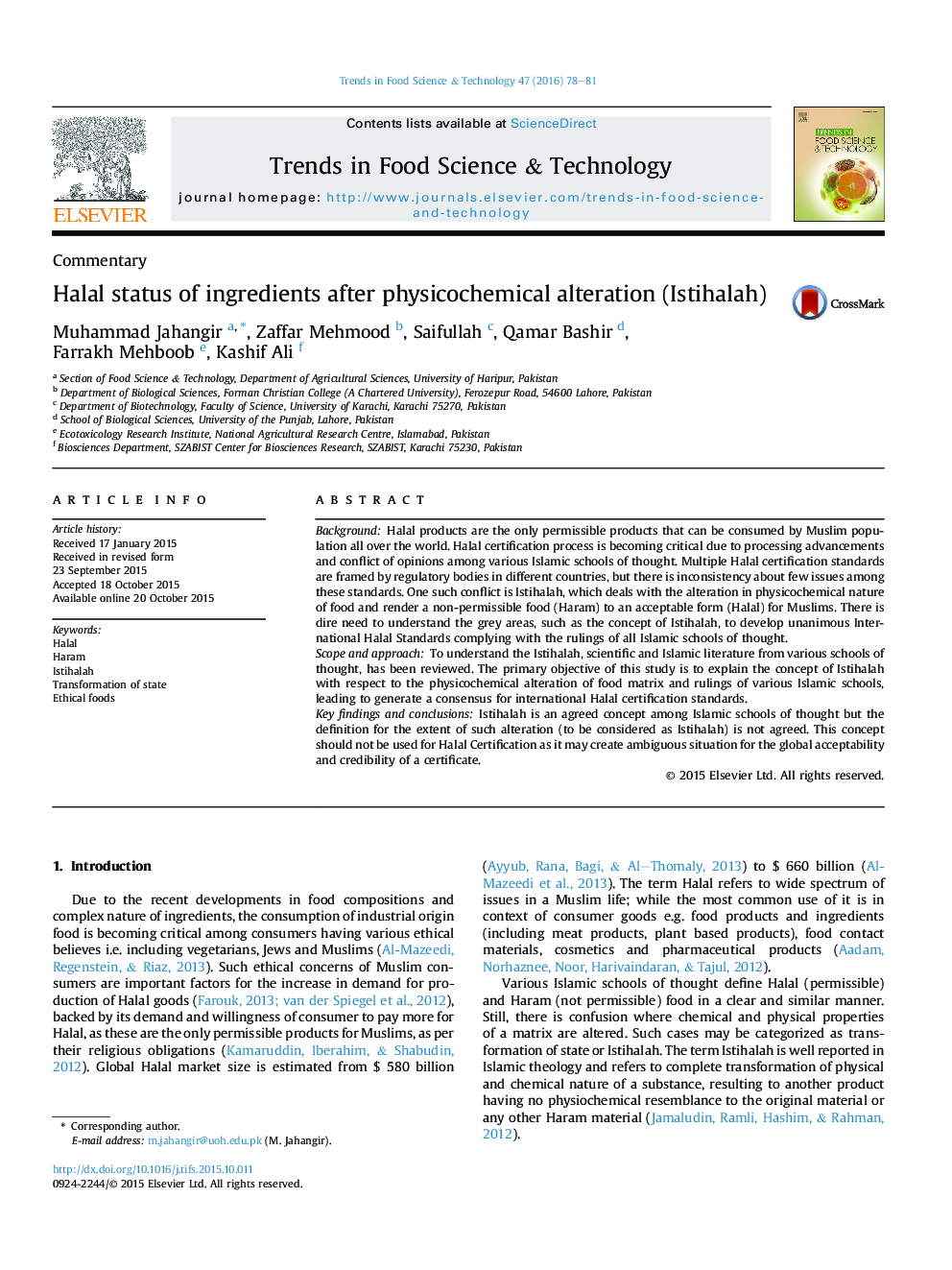| Article ID | Journal | Published Year | Pages | File Type |
|---|---|---|---|---|
| 2098571 | Trends in Food Science & Technology | 2016 | 4 Pages |
•Halal conformance is an increasing demand, globally.•Physical and chemical change in food matrix occurs during processing.•Halal certificate by Istihalah concept may become doubtful for some Halal regulatory bodies.•Producers need to understand Istihalah for Halal assurance of their products.
BackgroundHalal products are the only permissible products that can be consumed by Muslim population all over the world. Halal certification process is becoming critical due to processing advancements and conflict of opinions among various Islamic schools of thought. Multiple Halal certification standards are framed by regulatory bodies in different countries, but there is inconsistency about few issues among these standards. One such conflict is Istihalah, which deals with the alteration in physicochemical nature of food and render a non-permissible food (Haram) to an acceptable form (Halal) for Muslims. There is dire need to understand the grey areas, such as the concept of Istihalah, to develop unanimous International Halal Standards complying with the rulings of all Islamic schools of thought.Scope and approachTo understand the Istihalah, scientific and Islamic literature from various schools of thought, has been reviewed. The primary objective of this study is to explain the concept of Istihalah with respect to the physicochemical alteration of food matrix and rulings of various Islamic schools, leading to generate a consensus for international Halal certification standards.Key findings and conclusionsIstihalah is an agreed concept among Islamic schools of thought but the definition for the extent of such alteration (to be considered as Istihalah) is not agreed. This concept should not be used for Halal Certification as it may create ambiguous situation for the global acceptability and credibility of a certificate.
